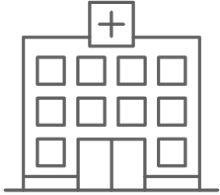Projects
Recent projects only
Enabling Personalised Self-care at Home
This project aims to understand the dynamics of patient engagement and interactions with existing and new technologies and tools to support self-care at home. The solution will be designed to help an end-user to access a wide range of services/applications (apps); education, information, interactions (video/audio and chat), workflow, and utilisation of personal device data to better inform the decision-making of our patients (and support services) on a day-to-day basis.

VitalsAssist: An mHealth Application for Patient Monitoring
Vital signs monitoring and clinical decision support system with integrated medical devices. Bed-side vitals collection with integrated devices. Support timely escalations and responses for clinical deterioration in acute care settings. Adopted NZ National Early Warning Score protocols/ guidelines.
1. Bedside vital signs collection
2. Early detection and escalation of deteriorating patient
3. Mobile application with integrated medical devices

Risk of Hospital Readmission
The focus of this research is to validate the current clinical risk of readmission assessment (the LACE score) and compare it with the “patient at risk for re-hospitalisation” (PARR) score used in acute care settings in NZ. This project involves designing and developing a predictive model for clinical readmission risk assessment in order to test the prediction accuracy within a short period of time such as 30, 60, 90-day readmission risk from the date of discharge.
Long-term Conditions Monitoring using Wearable Technologies
This project was focused on early detection of prediabetes and T2DM using wearable technology and Internet-of-Things-based monitoring applications. We developed an artificial intelligence model to detect prediabetes and T2DM via individualised monitoring. The key contributing factors to the proposed model include heart rate, heart rate variability, breathing rate, breathing volume, and activity data (steps, cadence, and calories).
A Patient’s Journey for an Elective Surgery – An Automated Approach Towards Prioritisation and Preoperative Assessment
The path to an elective surgery can contain many difficulties for both patients and clinicians. It is a lengthy, as well as daunting, process for the patient, while delays and cancellations can be extremely costly for the healthcare provider. This project looked at how to devise the most productive processes and systems for managing the end-to-end elective surgery journey for patients.
Smart Vital Signs Monitoring and Novel Falls Prediction System for Older Adults
Health monitoring systems have rapidly evolved during the past two decades and have the potential to change the way healthcare is currently delivered. Smart monitoring systems automate patient monitoring tasks and thereby improve the patient workflow management. Clinicians working in hospital wards are responsible for conducting a multitude of tasks which require constant vigilance and thus the need for a smart decision support system has arisen. This project focused on three important areas of healthcare: wireless, remote and real-time vital signs monitoring, interpreting multiple physical signs and falls detection and prediction for hospitalised older adults.
